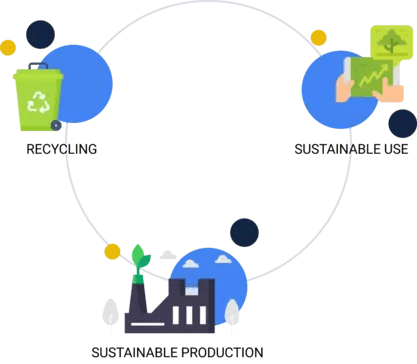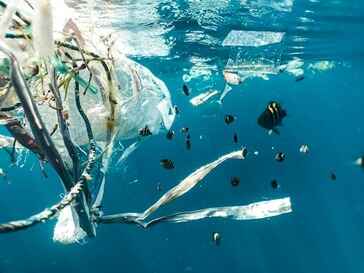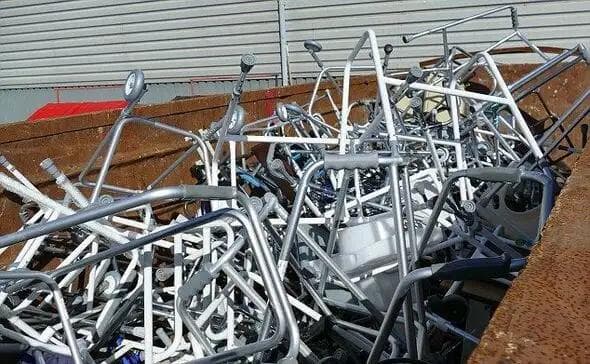- Blog
- LendoCare is Building the Circular Economy for Healthcare
Sustainability
LendoCare is Building the Circular Economy for Healthcare
Understanding the Circular Economy
At LendoCare sustainability is at the heart of everything we do, our goal is to bring the world closer to a greener and more circular future.

The Linear Economy
The most prominent, and current, model of the economy is one which adopts a linear approach.
This is known as linear economy and pays practically no consideration to the ecological implications of its carbon footprint. It neglects to incorporate a regenerative component to the product life-cycle resulting in outcomes that are very real and damaging, not only our environment but also to many other areas of society.

The Circular Economy
At its core, a circular economy focuses on the reduction of waste through the reuse of resources. This concept, which can be strategised in numerous ways, has many definitions. One way of defining this approach would be as follows:

“A circular economy is an economic system of closed loops in which raw materials, components and products lose their value as little as possible.”
Contrary to the conventional linear economy, the circular economy seeks to optimise its renewable practices and limit the inevitable outcome of excess waste. This is made possible by its regenerative design. Subsequently, it can also maintain growth whilst detaching itself from finite resources.
Closed cycles within a circular economy drive the recycling of products. Any residual streams are introduced into a products lifecycle again and as such, any “waste” is re-used as opposed to disposed. This approach creates an ecosystem which is self-preserving by virtue of its minimisation of waste.
Additionally, there is also an implicit reduction in energy use; By re-introducing residual streams you are removing the energy otherwise needed to produce further products.
“There are 5.25 trillion pieces of plastic waste estimated to be in our oceans. 269,000 tons float, 4 billion microfibers per km² dwell below the surface.”
Advantages of the Circular Economy
“The United Nations Environmental Plan (UNEP) calculated that in 2050 the global economy would benefit from more effective resource use by $2 trillion a year”
One major benefit of a circular approach is economic growth. Through more functional and conservative use of product and resources, you are able to cut down on the cost of otherwise relentless demands for new ones. This avenue reduces the need for the extraction of excess raw materials, resulting in lower greenhouse gas emissions and a reduction in other land and water pollutants.
Employing a circular model also provides incentives to use renewable energy sources as this would create a truly circular system which preserves rather than consumes. Turning to renewable energy sources successfully would yield endless benefits to the environment at-large.
The principle feature of the circular economy here, is its ability to decouple economic growth from finite resources.
The introduction of a circular economy would also positively influence employment rates as it brings new specialised jobs designed to facilitate the development and recycling of products and resources.

The Circular Economy in Healthcare
The amount of NHS equipment being thrown away every years is a problem that is still struggling to be solved. Take back schemes are a great start but if the products come back damaged they end up in the bin because it's just not worth trying to repair them.
The solution needs to start at the very beginning. At the point of design. Making products that are easy to repair and maintain, just like what we're doing at LendoCare. By upgrading our stock and investing in more durable products can we be sure that customers will be receiving high-quality products every time.
It's a shame that applying long-term thinking can be so difficult when it comes to reuse, but we're happy to help if you want to start!
Hire with us to grow the circular economy: www.lendocare.com
